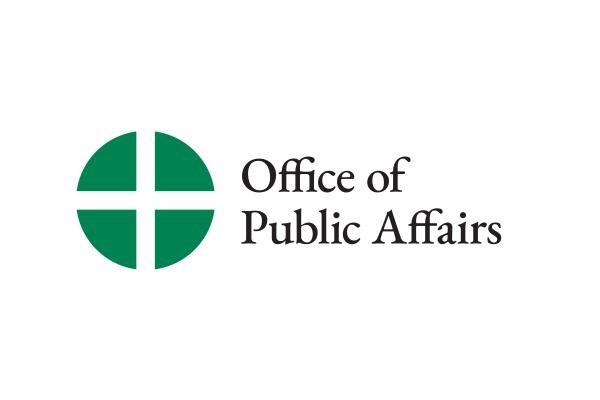Mid-Atlantic Catholic-Muslim Dialogue Discusses Principles Of Religious Education, Examines Interreligious Programs
WASHINGTON—The Mid-Atlantic Catholic-Muslim Dialogue continued developing a strategic plan for interreligious education at its meeting in the headquarters of Why Islam Project of the Islamic Circle of North America (ICNA) in Somerset, New Jersey, April 13-14.
WASHINGTON—The Mid-Atlantic Catholic-Muslim Dialogue continued developing a strategic plan for interreligious education at its meeting in the headquarters of Why Islam Project of the Islamic Circle of North America (ICNA) in Somerset, New Jersey, April 13-14. Co-sponsored by the United States Conference of Catholic Bishops (USCCB) and ICNA, the dialogue continued to examine how religious education curricula and textbooks represent the beliefs, practices and followers of other religions.
“Our dialogue has taken on renewed urgency since we met last year,” said Catholic co-chair, Auxiliary Bishop Denis Madden of Baltimore, in his opening remarks. Madden noted how tensions over religious freedom in the nation can be used to capture the public’s imagination regarding the importance of interreligious dialogue, while also becoming an opportunity for some public officials and commentators to exploit such conflicts for political gain.
“Because of our past and present experience as an immigrant people, we Catholics are very sensitive to our Muslim brothers and sisters when they come under intense scrutiny by the mass media or government officials,” Bishop Madden said.
In the opening presentation, “Islamic Principles of Education,” Talat Sultan, Ph. D, Muslim co-chair, explained how all principles of Islamic education find their origin in an appreciation of the unity of God. He explained how the ideal Islamic instructional process emanates from three principles: Sama’a, being accountable for one’s ability to listen, reason, and appreciate the accumulated knowledge of mankind; Basara, the quality of “perception and observation” that allows participation in scientific investigation; and Fu’ad, creative action that flows from both deductive and inductive learning. In the ensuing discussion, participants noted how important it is for every religious educational system today to engage the more pervasive secular educational and social environments. The challenge is to discern how to engage the values of secular society in a constructive manner.
The second session featured two short presentations on interreligious programs currently in use in the United States and in England. Catholic educator Al Grindon of Los Angeles reported on an innovative multi-religious project called “Peace by Piece” in Altanta, which brings together three high schools from the Catholic, Jewish and Muslim communities. Distinct for being school-based rather than congregation-based, the program seeks to build up the experiential, relational and practical aspects of interreligious education of students.
The dialogue also heard from Ataullah Siddiqui, Ph.D, fellow at Woodstock Theological Center at Georgetown University, Washington. Presenting on Muslim-Christian cooperation in the United Kingdom, Siddiqui pointed out how in earlier years it was difficult to integrate Muslim teachers into the religious education courses mandated by English law. An innovative approach was first achieved by founding training programs for chaplaincies in hospitals and other health care institutions. This became a model for the schools. Siddiqui has helped develop programs in which imams and Islamic scholars from abroad come to the U.K. for study and inter-cultural encounters that cultivate appreciation for the multi-religious milieu of Europe. “In every interreligious educational setting, we need to let the other define him or herself,” said Siddiqui. “Islam should be taught by Muslims; Christianity should be taught by Christians.”
Other Muslim representatives in attendance included ICNA president Zahid Bukhari, Ph.D; Imam Hamad Ahmad Chebli, Islamic Society of Central New Jersey; Imam Hafiz Zafeer Ali, ICNA Headquarters; Imam Muhammad Abdul Jabban, Ph.D, Masjid Darul Qur’an, Bayshore, New York; Shaykh Abdool Rahman Khan, resident scholar, Islamic Foundation Villa Park, Chicago; Muhhammad T. Rahman, secretary general, ICNA, Jamaica, New York; and Naeem Baig,Ph.D, vice president, ICNA, dialogue staff.
Additional Catholic representatives included Christian Brother David Carroll, Aquinas Chair of Catholic Studies, Thomas Aquinas College, Sparkill, New York; Father Sidney Griffith, chairman of the Institute of Christian Oriental Research, The Catholic University of America; Pim Valkenberg, Ph.D, Loyola University, Maryland; Sandra Keating, Ph.D, Providence College; Paulist Father Thomas Ryan, Ecumenical and Interreligious Officer, Paulist Fathers; and Father Leo Walsh, STD, USCCB staff.
The next meeting will be held April 18-19, 2012, at St. Paul’s College, in Washington.
The Mid-Atlantic Dialogue between Catholics and Muslims has been sponsored jointly by the USCCB Committee for Ecumenical and Interreligious Affairs and ICNA since 1996. Its latest statement, Marriage: Roman Catholic and Sunni Muslim Perspectives, and other information about the dialogue are available on the USCCB Website at https://www.usccb.org//about/ecumenical-and-interreligious-affairs/ and at www.whyislam.org.
---
Keywords: Mid-Atlantic Catholic-Muslim Dialogue, Islamic Circle of North America, religious education, interreligious programs, Bishop Denis Madden, United States Conference of Catholic Bishops, USCCB

